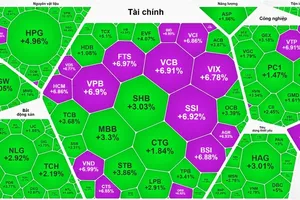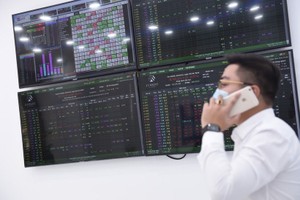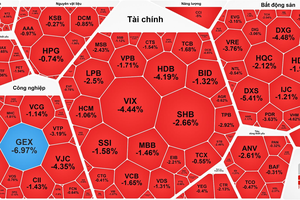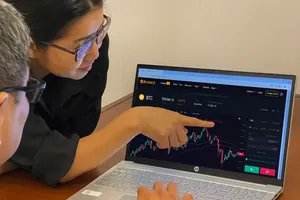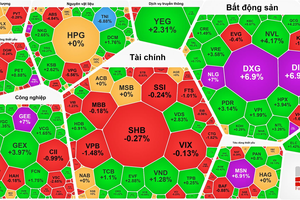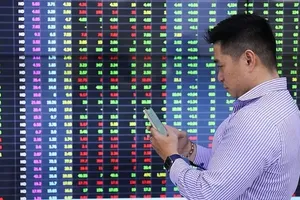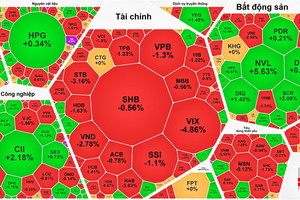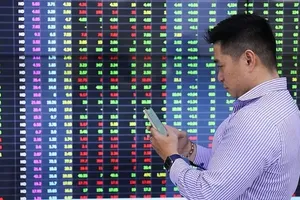
Addressing a gong beating ceremony held at the Hanoi Stock Exchange (HNX) on January 2 to mark the first trading session of 2024, Deputy Minister of Finance Nguyen Duc Chi said that as of December 29 – the last working day of 2023, Vietnam’s benchmark VN-Index reached 1,129.93 points, up by over 12 percent from the end of 2022.
The stock market’s liquidity topped VND 17.5 trillion per trading session, he noted, adding that there were 739 stocks and exchange traded funds listed and 862 stocks registered for transactions.
Meanwhile, the derivatives stock market remained stable with an average of 236,867 contracts traded per session.
Accounts of new investors increased by over 350,000 last year, raising the total number of securities accounts to nearly 7.4 million, equivalent to 7.5 percent of the population – higher than the 5 percent target set in the plan on restructuring the stock and insurance markets by 2020 with orientations towards 2030.
Meanwhile, more than VND305 trillion was mobilised via G-bond auctions, up 54.9 percent year on year. The derivatives market recorded nearly VND 6 trillion worth of bonds traded per session.
There were 210 successful private placements of corporate bonds worth over VND 218.43 trillion, Chi noted, adding that last year also marked the trading system for private placements of corporate bonds officially put into operation, thus significantly helping with the market’s openness, transparency, and sustainability.
In his speech, the official said that in 2023, the stock market was managed and monitored constantly to ensure its safe, smooth, transparent, and disciplined operations.
As the international and regional situations are predicted to continue facing complex developments this year, financial policies need to be flexible, prudent, and closely follow the political and economic situations in the world and the region.
Vietnam’s stock market also needs to approach international standards and narrow its development gap with the global market. It is also critically important to improve manpower quality and information-related activities to serve market management, the Deputy Minister continued.
For her part, Chairwoman of the State Securities Commission of Vietnam Vu Thi Chan Phuong said that this year, the commission will focus on perfecting policies, enhancing supervision, stringently dealing with violations, facilitating market development, and taking measures for lifting the country’s stock market status from a frontier market to an emerging one.
